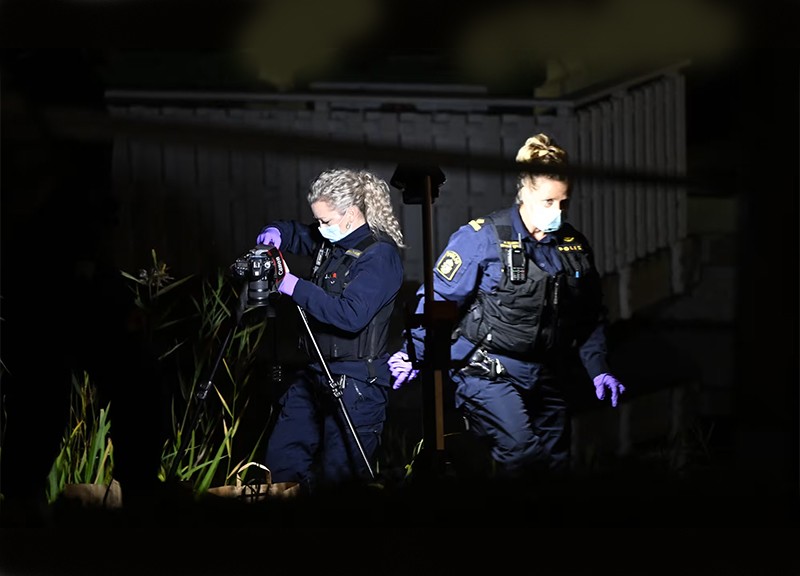
After setbacks in Lebanon and Gaza, Tehran is finding new ways to go after Israeli interests
By Sune Engel Rasmussen, WSJ
Iran and its allies, battered by Israeli attacks and the killing of Hezbollah leader Hassan Nasrallah, are running out of options to strike back without risking a regional war that could set them back even further.
But there is one area where Western security agencies and experts fear Iran will try to hit Israel: Hiring criminal gangs in the West.
Iran has long used local militias to pursue its goals across the Middle East. In recent years, Tehran has exported that model to Europe, allying with drug lords and gangsters to go after Jewish or Israeli targets and other perceived rivals. A recent wave of suspected Iranian-ordered attacks include a hand grenade thrown at the Israeli Embassy in Stockholm and a Spanish politician shot in the face in broad daylight.
Last week, Danish police arrested and charged two Swedish men aged 16 and 19 with terrorism in connection with two explosions, likely from hand grenades, near the Israeli Embassy in Copenhagen. Swedish media said they were affiliated with a gang leader accused of ordering violent plots in Scandinavia on behalf of Tehran, where he is hiding from arrest warrants.
As Iran and its allies seek ways to respond to respond to recent Israeli attacks in Lebanon, but with limited options in their region, Europe provides an accessible arena to strike Israeli interests, experts say, Russia, too, has noticed the opportunity. The head of the UK's domestic spy agency on Tuesday said Russia and Iran increasingly are using low-level criminals to carry out arson and sabotage attacks against dissidents and sow chaos across Europe.
MIS Director General Ken McCallum said Russia is using criminal networks after its spy network largely was dismantled by the expulsion of 750 diplomats after the Kremlin launched the 2022 Ukraine invasion.
Israel's National Security Council, meanwhile, said last month that it identified a sharp rise in efforts to hit Israeli targets worldwide since Hamas's Oct. 7, 2023, attack.
Covert operations in Europe have become a tool of asymmetric warfare for hostile actors, said Daniel Byman, senior fellow at the Center for Strategic and International Studies in Washington and an expert on terrorism and insurgencies. While Hezbollah's military command has been decimated, plots in Europe require few resources. "It enables you to strike a range of targets that are often unde- fended. Small groups of individuals can do it without much training and money," he said.
New opportunities are emerging because of relatively open borders and a rise in organized crime in historically safe countries such as Sweden, the U.K., the Netherlands and Germany.
The alliance between Iran and European criminals can be traced back to decades of network-building in the Middle East, where militias in Iran’s self-described axis of resistance—including Hezbollah—are involved in international criminal networks, smuggling drugs, weapons and other goods to fund and arm their operations.
"The axis of resistance, the way it operates, is very mafia-like," said Sanam Vakil, director of the Middle East and North Africa Programme at Chatham House, a think tank in London. "That's why finding gangs and finding people to run these operations isn't so difficult for Iran. Relations were primarily economic, and now they have developed into something else."
The attacks are also an indication of necessity. Iran and Hezbollah don't have the intelligence means to respond in kind to suspected Israeli assassinations, and Tehran's missile barrages against Israel, in April and this week, were largely ineffective. Aside from Israeli or Jewish targets, criminals have at tacked other figures who might have rankled Iran. And plots have spread to the U.S., too. U.S. law enforcement in July arrested a Pakistani national, whom the Justice Department said had close ties to Iran, after he tried to hire an undercover FBI agent posing as a hit man to assassinate a U.S. politician. The plot was "straight out of the Iranian playbook," said FBI Director Christopher Wray.
"The Islamic Republic of Iran harbors neither the intent nor the plan to engage in assassination or abduction operations," said a spokesperson for Iran's mission to the United Nations.
Some criminals have received safe haven in return for their work.
Rawa Majid, the kingpin of Foxtrot, one of the Swedish gangs behind the Israeli Embassy attacks in Copenhagen and Stockholm, was arrested in Iran last year, according to Swedish media. He is accused of directing terror plots across Europe at the direction of Teh- ran, while hiding from an international arrest warrant, said Israeli intelligence. He couldn't be reached for comment.
By using such people, Iran benefits in a similar way to how it uses militias in the Middle East, said Matthew Levitt, senior fellow at the Washington Institute for Near East Policy and expert on Iranian- backed groups and terrorism. "They want to do things with plausible deniability," he said. And it is increasingly cost effective.
Iran doesn't even need to build direct contact with gangs. It can work through middlemen with contacts in the criminal underground, said Manne Gerell, associate professor at Malmö University with expertise in organized crime in Sweden.
"These are project-based hits, and the people who organize them don't have to have an affiliation with any gang. They can be independent contractors," he said.
Sometimes gang members will kill for as little as $1,000, Gerell said, or sometimes for free if it improves their standing in criminal circles.
-Max Colchester contributed to this article.














